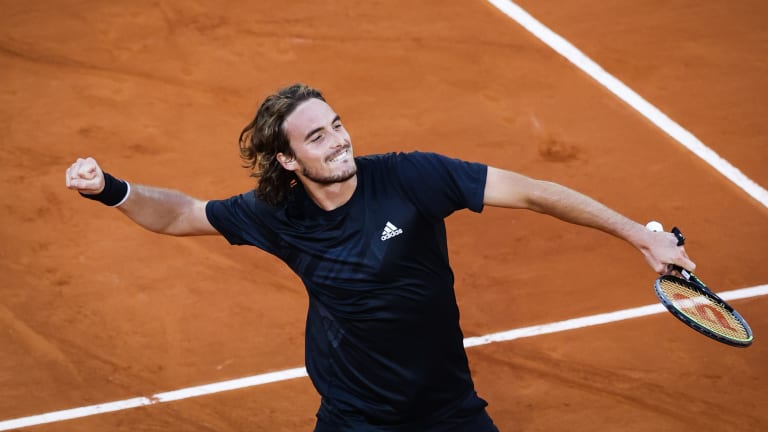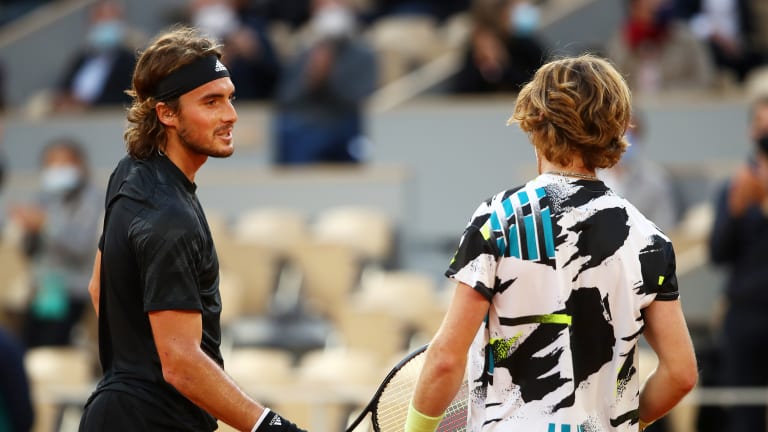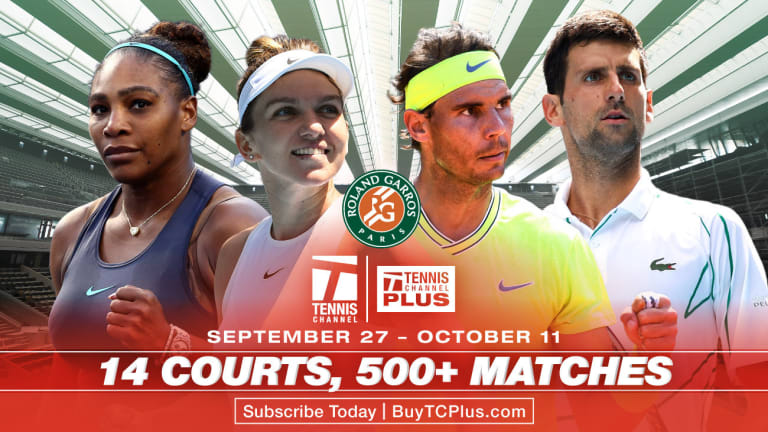Roland Garros
Redemption of Stef: After US Open anguish, Tsitsipas thrives in Paris
By Oct 07, 2020Roland Garros
Roland Garros says tennis fans must have their tickets stored on official tournament app
By Mar 12, 2024Roland Garros
Victor Wembanyama, surefire No. 1 pick in NBA draft, bids adieu to France in game at Roland Garros
By Jun 15, 2023Roland Garros
Analysis: Novak Djokovic has 23 Slams, so is he the GOAT? He leaves that debate to others
By Jun 12, 2023Roland Garros
Novak Djokovic returns to ATP No. 1 with his 23rd Slam title; Iga Swiatek stays at WTA No. 1
By Jun 12, 2023Roland Garros
Novak Djokovic’s 23rd Grand Slam win had all the hallmarks of what brought him to this record-breaking pinnacle
By Jun 11, 2023Roland Garros
Novak Djokovic wins his 23rd Grand Slam title by beating Casper Ruud in the Roland Garros final
By Jun 11, 2023Roland Garros
Where, when and how Novak Djokovic won each of his 23 Grand Slam titles
By Jun 11, 2023Roland Garros
Novak Djokovic moves up the list of most Grand Slam titles in tennis history with No. 23
By Jun 11, 2023Roland Garros
History: Novak Djokovic passes Rafael Nadal with record 23rd Grand Slam title at Roland Garros
By Jun 11, 2023Roland Garros
Redemption of Stef: After US Open anguish, Tsitsipas thrives in Paris
“I’m chasing something spectacular,” the Greek said after his impressive straight-sets win over Andrey Rublev in the quarterfinals.
Published Oct 07, 2020
Advertising

Redemption of Stef: After US Open anguish, Tsitsipas thrives in Paris
© AFP via Getty Images
Advertising

Redemption of Stef: After US Open anguish, Tsitsipas thrives in Paris
© Getty Images
Advertising

Redemption of Stef: After US Open anguish, Tsitsipas thrives in Paris